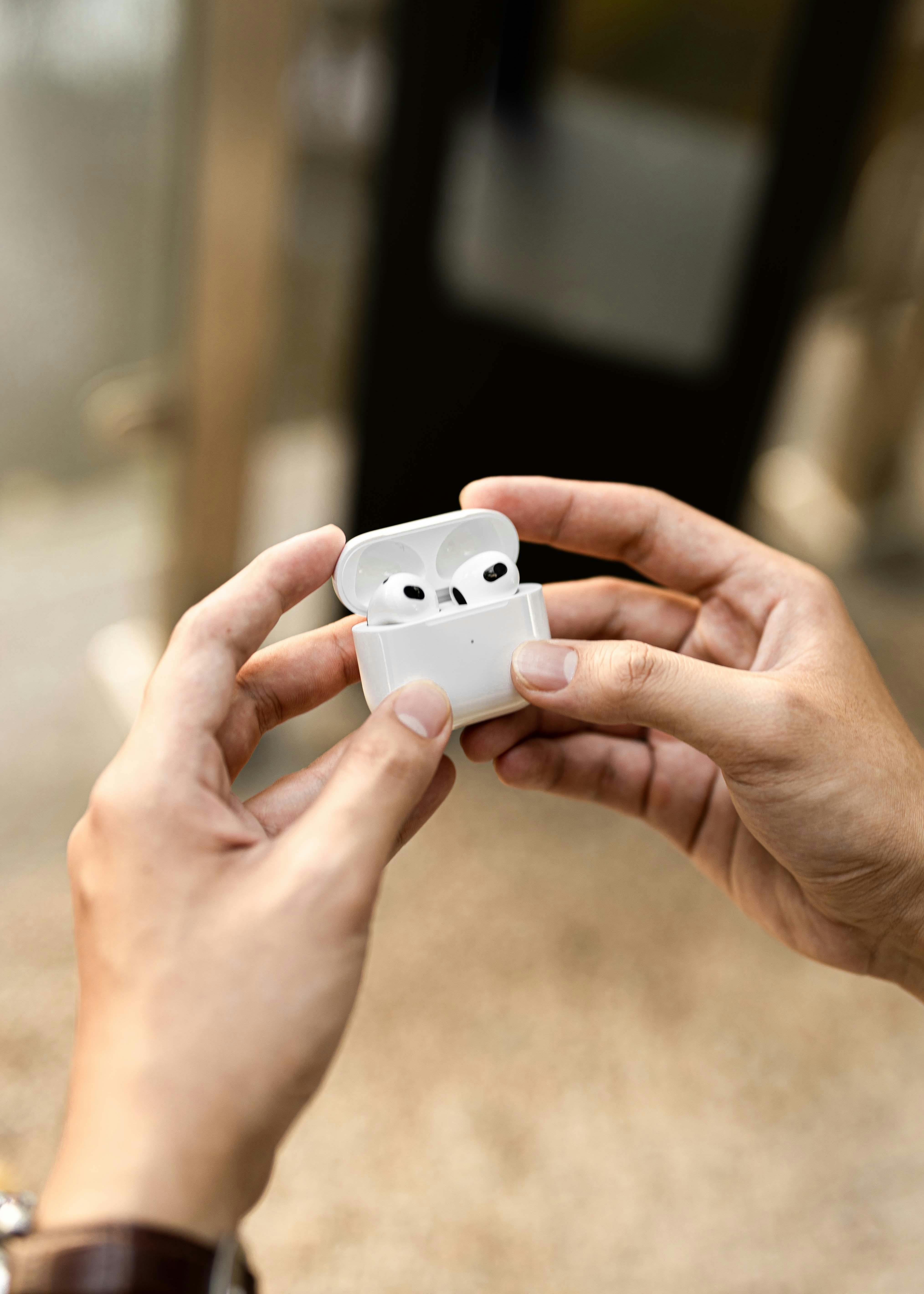Effective Strategies for Measuring Your Personal Development in 2025
Introduction to Self-Assessment for Personal Growth
In a world that is constantly evolving, the pursuit of personal development has become more crucial than ever. Self-assessment plays a significant role in this journey, enabling individuals to evaluate their strengths, weaknesses, and overall progress as they strive for personal growth. By measuring oneself accurately, you can set achievable goals, track your progress, and refine your strategies to enhance your self-improvement efforts.
This article delves into effective ways to measure yourself for accurate personal development in 2025. We will explore various techniques that encompass self-reflection, performance measurement, and feedback loops that are vital in fostering a growth mindset. From goal setting to emotional intelligence, each aspect contributes to improving your clarity of purpose and overall fulfillment in life.
As we navigate through this article, expect to discover practical tips, motivation techniques, and the importance of personal metrics that will empower you on your personal development journey. Let’s embark on this path toward realizing your full potential and achieving lasting change.

Essential Techniques for Self-Reflection and Assessment
Building on the fundamentals of personal development, the first step to achieving meaningful growth is through effective self-reflection and assessment. Engaging in these practices allows individuals to identify areas of improvement and develop strategies for advancement.
Daily Reflections for Improved Self-Awareness
One of the most effective self-assessment techniques is daily reflection. This practice encourages individuals to pause and evaluate their thoughts, feelings, and actions each day. By journaling about your experiences, you not only gain clarity of purpose but also identify recurring patterns that may hinder your progress.
To implement daily reflections, set aside time each evening to document your thoughts in a journal. Begin by writing about the day's events, focusing on achievements and challenges. End with insights on what you can improve for the next day. This simple exercise fosters self-awareness and lays the groundwork for effective goal alignment.
Emotional Intelligence Assessments
Another critical aspect of self-assessment is evaluating your emotional intelligence (EI). Developing emotional intelligence enhances your ability to manage your emotions and understand the emotions of others. This understanding fosters better relationships, effective communication, and resilience in the face of challenges.
Various online assessments and quizzes can help gauge your EI. After completing an assessment, analyze the results to identify strengths and areas for improvement. Remember, enhancing your emotional intelligence is a continuous journey that contributes significantly to personal fulfillment.
Incorporating Feedback for Continuous Improvement
Integrating feedback into your self-assessment routines creates constructive loops of personal growth. Seeking feedback from peers, mentors, or family can provide valuable insights into your performance and areas needing improvement. Furthermore, it encourages accountability and motivation.
To maximize the benefits of feedback, approach it with an open mind. Formulate constructive questions and actively listen to the responses. Regularly incorporate feedback into your action plans, which will enhance your adaptability and foster a growth-oriented mindset.
Goal Setting: Mapping Your Personal Objectives
Once you've established a foundation of self-assessment, goal setting becomes crucial for your personal development journey. Clear goals act as milestones that guide you toward your overall ambitions. Understanding how to measure progress against these goals will help you stay on track and motivated.
SMART Goals for Effective Achievement Tracking
To facilitate success in goal setting, utilizing the SMART criteria—Specific, Measurable, Achievable, Relevant, and Time-bound—provides a structured approach. This method ensures that your goals are well-defined and realistic, making it easier to track your progress.
For example, rather than setting a vague goal like "improve fitness," you could set a SMART goal: "Attend a 1-hour yoga class three times a week for the next three months." This clarity fosters motivation and accountability, as progress can be easily evaluated through performance goals.
Aligning Goals with Personal Values
Successful goal setting hinges on aligning your objectives with your personal values. Taking the time to clarify what truly matters to you enhances motivation and commitment to your goals. This ensures that your pursuit of personal development is not only effective but also fulfilling.
To assess your values, consider journaling about what brings you joy and fulfillment in life. Use these reflections to create goals that resonate deeply with your sense of purpose, thereby keeping you on your path during challenging times.
Utilizing Progress Evaluation Frameworks
Establishing a system of progress evaluation frameworks can significantly enhance your ability to track personal growth. These frameworks offer structured methods for assessing your achievements against your set goals.
Consider implementing techniques like visual goal tracking or life timelines to monitor progress over time. Regularly evaluate your achievements and setbacks, adjusting your strategies as needed. This adaptability reinforces the mindset of lifelong learning and continuous improvement.
Strengths and Weaknesses Analysis for Effective Personal Development
With your goals established, analyzing your strengths and weaknesses becomes vital in crafting a personal improvement strategy. Understanding these elements helps you leverage your capabilities while addressing areas that need growth.
Conducting a Skills Inventory
A skills inventory entails a thorough evaluation of your current capabilities, including both hard and soft skills. Creating a list of your strengths enables you to harness them effectively in your personal development journey, while identifying weaknesses provides you with a roadmap for improvement.
To perform your inventory, write down skills in categories such as communication, technical abilities, and emotional intelligence. From there, prioritize which skills require the most attention and create action plans accordingly.
Identifying Areas for Improvement through Self-Feedback
Self-feedback is a conceptual technique that can contribute to a more profound understanding of your growth areas. By regularly evaluating your progress against stated goals, you gather insights that inform your ongoing developmental strategies.
Consider using feedback loops to create structured evaluation periods weekly or monthly. During these times, assess what worked well and what didn’t, and adjust your plans respectively. Engaging in this practice develops resilience and fosters self-improvement.
Building Emotional Resilience in Your Growth Journey
As personal development can yield ups and downs, building emotional resilience is paramount. Develop strategies to manage setbacks and cultivate a positive mindset that propels you forward even amidst adversity.
Mindfulness techniques can greatly assist in this area. Practices such as meditation or controlled breathing can reduce stress and enhance emotional regulation, offering you tools to bounce back quickly from challenges.
Adapting to Change through Continuous Learning
Change is an inevitable part of personal development, making continuous learning essential. By adopting a mindset of curiosity and adaptability, you position yourself for ongoing growth and fulfillment.
Exploring Lifelong Learning Habits
Lifelong learning habits embed a culture of personal and professional growth. Engaging in regular reading, attending workshops, and pursuing new experiences enrich your skill set and expand your perspective.
Challenge yourself to learn a new skill quarterly, whether it’s a professional accreditation or a creative hobby. This consistent expansion of knowledge not only contributes to self-improvement but also stimulates your passion for success.
Practicing Mindfulness and Introspection Techniques
Incorporating mindfulness practices into your routine can bolster your self-discovery journey. Techniques such as meditation or journaling promote introspection, allowing you to delve deeper into your thoughts and emotions.
Set aside time weekly for these practices, ensuring you reflect on your experiences and feelings. This will heighten your self-awareness and enable you to navigate your personal development holistically.
Establishing Accountability through Peer Partnerships
Engaging with accountability partners enhances your commitment to personal growth. Surround yourself with individuals who share similar aspirations, providing mutual support and encouragement in your development journey.
Set regular check-ins with your partner to discuss progress, obstacles, and strategies. This shared commitment fosters motivation and accountability while creating a rich network of support for achieving big goals.
Q&A Section: Common Questions about Personal Development Measurement
What are the best self-assessment tools available?
There are numerous self-assessment tools available, such as personality tests (e.g., Myers-Briggs Type Indicator), emotional intelligence quizzes, and skills assessments that can facilitate your understanding of personal growth areas.
How often should I reflect on my progress?
Implementing weekly reflections helps provide a regular touchpoint for evaluating progress, while monthly evaluations allow deeper insights into your growth trajectory, ensuring you stay aligned with your goals.
What role does feedback play in personal development?
Feedback serves as a crucial element in the personal development process, providing external perspectives that can uncover blind spots and enhance self-awareness, ultimately empowering individuals to take meaningful action.
How can I maintain motivation throughout my journey?
Maintaining motivation can be achieved through setting realistic goals, celebrating small wins, and regularly revisiting your purpose. Engaging with supportive networks and establishing accountability can also keep you focused.
Where can I find additional resources for self-reflection and improvement?
A wealth of resources exists online, including articles, e-books, and workshops dedicated to self-reflection and personal development strategies. Websites like [Fix It Up](https://fixitup.info/?p=1698) provide insightful tools and techniques to support your journey.
Conclusion: Navigating Your Path to Personal Fulfillment
By deploying effective self-assessment techniques, engaging in actionable goal setting, and embracing a growth mindset, you establish a robust strategy for personal development in 2025. Remember that personal growth is a journey, and every step taken contributes to your ultimate fulfillment.
Optimize your self-awareness through daily reflections, gather valuable insights via feedback, and continuously adapt your strategies as you navigate the evolving landscape of personal development. With the right tools and mindset shifts, you can achieve your aspirations and enrich your life with purpose and clarity.

